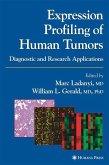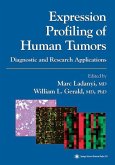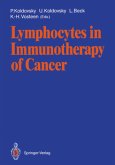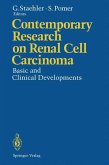Main description:
Leading investigators and clinicians detail the different mechanisms used by tumors to escape and impair the immune system and then spell out possible clinical strategies to prevent or reverse tumor-induced immune dysfunction. The authors review the mechanisms of immune dysfunction and evasion mechanisms in histologically diverse human tumors, focusing on tumor-induced molecular defects in T cells and antigen-presenting cells (dendritic cells and tumors), that may serve as biomarkers for patient prognosis. They discuss the means by which these immune functions may be protected or restored in order to more effectively support the process of tumor rejection in situ. Cutting-edge techniques are outlined with the capacity to monitor the strength and quality of patients' immune responses using immunocytometry, MHC-peptide tetramers combined with apoptosis assay, ELISPOT assay, and detection of MHC-TAA peptide complexes on tumor cells.
Hinweis: Dieser Artikel kann nur an eine deutsche Lieferadresse ausgeliefert werden.
Leading investigators and clinicians detail the different mechanisms used by tumors to escape and impair the immune system and then spell out possible clinical strategies to prevent or reverse tumor-induced immune dysfunction. The authors review the mechanisms of immune dysfunction and evasion mechanisms in histologically diverse human tumors, focusing on tumor-induced molecular defects in T cells and antigen-presenting cells (dendritic cells and tumors), that may serve as biomarkers for patient prognosis. They discuss the means by which these immune functions may be protected or restored in order to more effectively support the process of tumor rejection in situ. Cutting-edge techniques are outlined with the capacity to monitor the strength and quality of patients' immune responses using immunocytometry, MHC-peptide tetramers combined with apoptosis assay, ELISPOT assay, and detection of MHC-TAA peptide complexes on tumor cells.
Hinweis: Dieser Artikel kann nur an eine deutsche Lieferadresse ausgeliefert werden.
"...good reading for all those interested in oncological immunotherapy." -Cancer Forum
"State of the art and insightful...illuminates the possibilities for developing effective immunotherapies that can block the mechanisms by which tumors evade the immune system in different histologic types of tumors." - Tumori
"State of the art and insightful...illuminates the possibilities for developing effective immunotherapies that can block the mechanisms by which tumors evade the immune system in different histologic types of tumors." - Tumori








